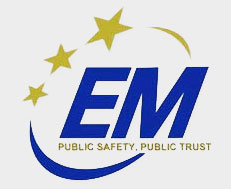Emergency Management

The City of Hobbs Office of Emergency Management (OEM) provides planning, training, exercises, and educational programs to assist citizens of Hobbs to prepare for and recover from emergencies and disasters. The OEM is responsible for the overall management of the Emergency Operations Center (EOC).
Fire, rescue, health, medical, law enforcement, and HAZMAT experts all have collaborated in the development and maintenance of a comprehensive Emergency Operations Plan (EOP) to deal with the four phases of emergency management.
MITIGATION - Any action taken to eliminate or reduce the degree of long-term risk to human life and property (including family pets) from any type of hazards. Some examples of mitigation are: building codes, public education, risk-area mapping, disaster insurance, tax incentives and statutes/ordinances/codes.
PREPAREDNESS - Any activity taken IN ADVANCE of an emergency that facilitates the implementation of a coordinated response. Some examples of preparedness are: hazard identification, emergency exercises, emergency operations' plans, emergency operations' centers, emergency broadcast systems, sirens and continuity of government.
RESPONSE - Any action taken immediately before, during or directly after an emergency occurs, which saves lives, minimizes damage to property and enhances the effectiveness of recovery. Some examples of response are: activation of the Emergency Operations Center (EOC), evacuation, emergency medical assistance, law enforcement response, emergency sheltering, fire and rescue response, and protective action announcements.
RECOVERY - A short-term activity to return vital life-support systems to minimum operating standards and long term activity designed to return society to safe and normal levels of activity. Some examples of recovery are: damage assessment, decontamination, disaster assistance, reconstruction, debris clearance, counseling, and temporary housing
There are many agencies, public officials, law enforcement, the media, amateur radio operators, volunteer organizations, private citizens and industry that are essential to the effectiveness of Emergency Management. Working together we can continue to keep Hobbs in a state of readiness.

